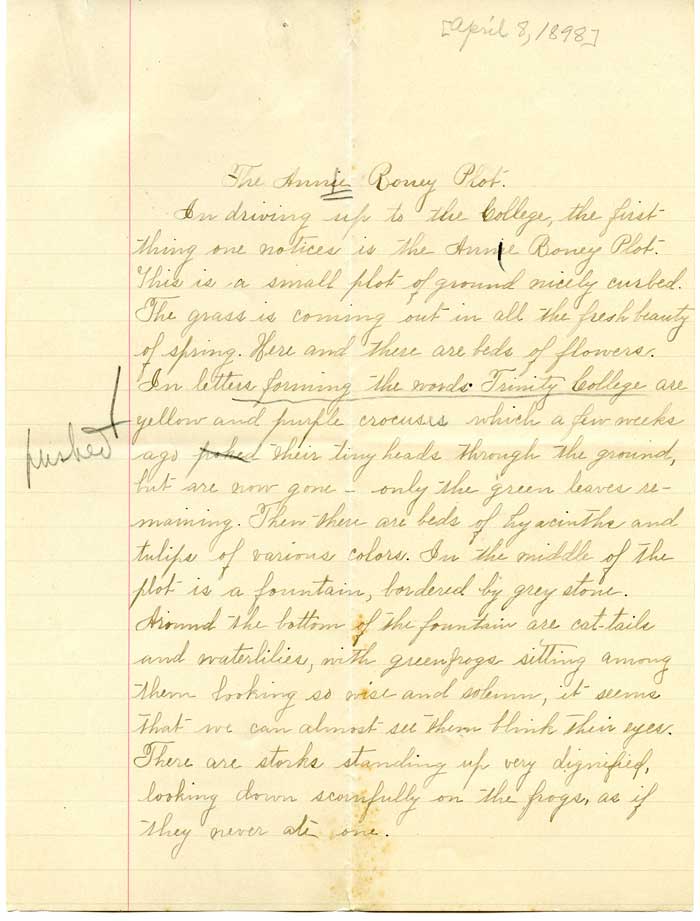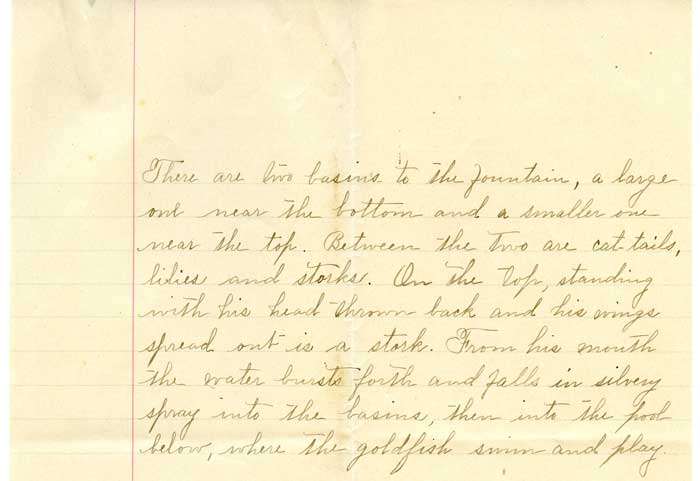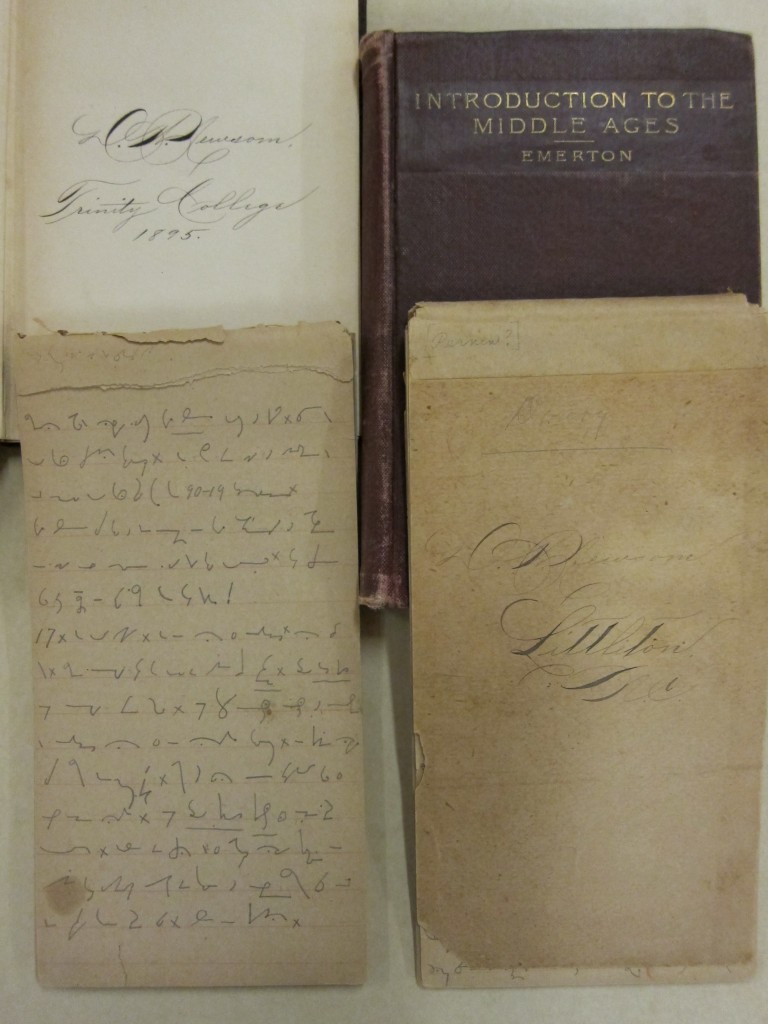Sometimes you set out to write a pleasant blog post about a turn-of-the-last-century Trinity College student’s short stories and end up correcting a moment of Duke University history you didn’t even realize needed correcting.
Lifelong Durham resident Lizzie F. Burch was a member of Trinity College’s Class of 1900. The Rubenstein Library has a collection of papers from Burch’s school days, so I took a look through them, hoping to learn more about life at Trinity College a few years after its relocation to Durham. Burch died in 1945, and it’s lovely to know that she took such good care of the essays she wrote and the notes she took in her Trinity College classes for over forty years.
Browsing through the papers and short stories written for her English classes, I came across an essay from her 1898 sophomore English class titled “The Anne Roney Plot.” This plot was a small garden at the end of Trinity College’s entrance drive, just in front of the Washington Duke Building (the college’s main building, which burned down in 1911; it sat roughly where East Duke Building is now).

The plot contained a tiered fountain, given to Trinity College by Anne Roney, aunt to Mary, Benjamin, and James Buchanan Duke. If you’ve visited the Sarah P. Duke Gardens in the past few years, you may have seen the fountain at the center of the Gardens’ Mary Duke Biddle Rose Garden; it was moved from East Campus in 2011.
Here’s Lizzie Burch’s essay on the plot and its fountain.


Funny thing is, the University Archives is on record as stating that the fountain was donated and placed in front of the Washington Duke Building in 1901.
There’s a good reason we made our initial claim. Back then, Trinity College included information about major gifts given to the college in the annual academic bulletins. The bulletin released in Spring 1901 includes the first mention of Anne Roney’s gift to the campus:

But this doesn’t quite jibe with our friend Lizzie’s essay, so we turned to the Office of University Development’s records, which contain accounts—in several very detailed and very heavy ledgers—of long-ago gifts to the college.
The ledgers directed us to the May 1897 issue of the Trinity Archive (yep, the ancestor of the current Archive), where we found the following paragraph in an article titled “Growth of the College during the Year”:

So, 1897 it is. We very humbly stand corrected. Sometimes our sources are unclear, incomplete, or just plain wrong, and we are always glad to be able to revise and clarify, even if it means admitting our own mistakes!





